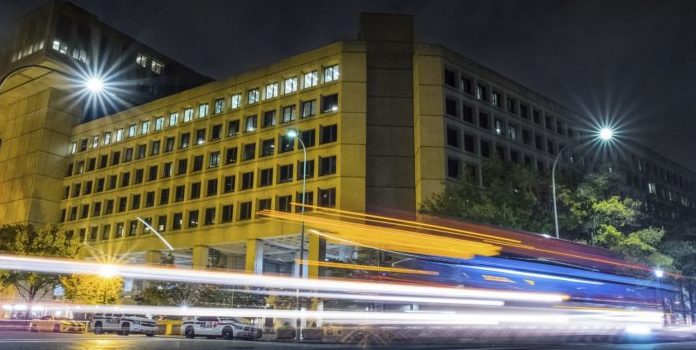(Ken Silva, Headline USA) In a January 2020 decision, the Eleventh Circuit Court of Appeals determined that LabMD owner Michael Daugherty had been the victim of a collusion scheme between a rogue FBI contractor and the Federal Trade Commission.
But by then, the damage was already done. Daugherty had already closed LabMD, a cancer-detection business that at one point served more than 700,000 patients.
Now, Daugherty seeks to hold the individuals who targeted his business accountable. A legal brief—which Daugherty filed last week to the Washington DC Court of Appeals and provided to Headline USA—outlines his roughly 15-year saga.
In 2008, Daugherty was contacted by cybersecurity firm Tiversa with the news that hundreds of leaked LabMD documents were available online. Tiversa had recently worked with the FBI to investigate child pornography and other computer crimes—efforts that were awarded by then-FBI director Robert Mueller, as documented in a 2019 New Yorker profile.
According to Daugherty, Tiversa offered to remedy his data breach at the rate of $475 an hour. When Daugherty declined, Tiversa allegedly turned the LabMD data over to the FTC, which then launched its investigation.
Embroiled in lawsuits, Daugherty was forced to close LabMD in 2014.
However, a Tiversa whistleblower came forward later that year to disclose the firm’s allegedly nefarious deeds. The whistleblower, Rick Wallace, testified in the FTC hearings about Tiversa’s attempted shakedown of LabMD and numerous other companies, also admitting to his company forging documents to make it appear as though LabMD’s data was found online—and not hacked by Tiversa.
Daugherty also discovered that Tiversa had used proprietary FBI “enhanced peer-to-peer software” against him, according to his recent legal brief.
The FTC’s enforcement action against LabMD was struck down in 2018, and Daugherty’s allegations were validated by an Eleventh Circuit ruling in January 2020. In that ruling, the Eleventh Circuit lambasted the FTC for participating in Tiversa’s alleged blackmail scheme.
“The FTC only received information about the [data] because LabMD had rejected Tiversa’s shakedown attempt,” said a Special Master that the Eleventh Circuit commissioned for the case.
“The FTC knew, or should have known, how Tiversa was getting its leads on companies it was reporting and should have been suspicious when Tiversa relayed the [data] surreptitiously. But it was not … The FTC was accepting information from Tiversa without questioning its motives or the veracity of the information.”
Armed with the Eleventh Circuit judgment, Daugherty is now suing the FTC employees allegedly involved in the scheme. This litigation has been an uphill battle due to the liability protections federal employees enjoy, Daugherty said.
The brief Daugherty filed last week seeks to revive a 2015 lawsuit against the FTC employees. The brief, filed with the Washington DC Appeals Court, urges justices to hold the employees accountable.
“Although [the FTC’s] actions were eventually discovered and exposed, and the Eleventh Circuit vacated the FTC’s enforcement action against LabMD, LabMD, a specialized cancer detection lab, was destroyed in the process,” Daugherty said in the brief. “And the FTC and the individuals responsible for this horrific injustice have evaded any responsibility for their intentional, malicious, and unconstitutional actions.”
The FTC employees have until Feb. 21 to respond to Daugherty’s brief.
Ken Silva is a staff writer at Headline USA. Follow him at twitter.com/jd_cashless.

